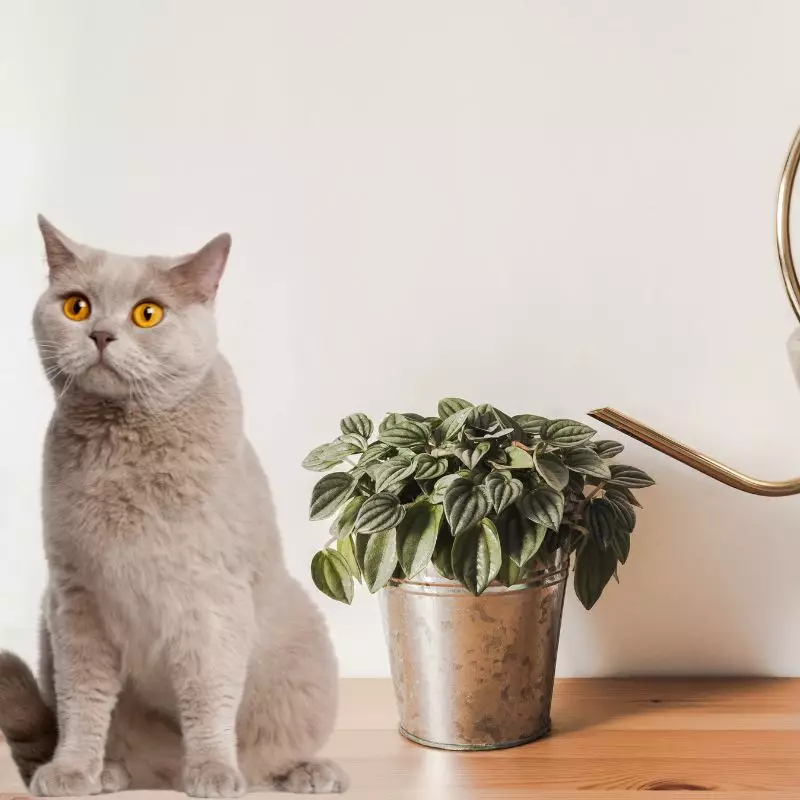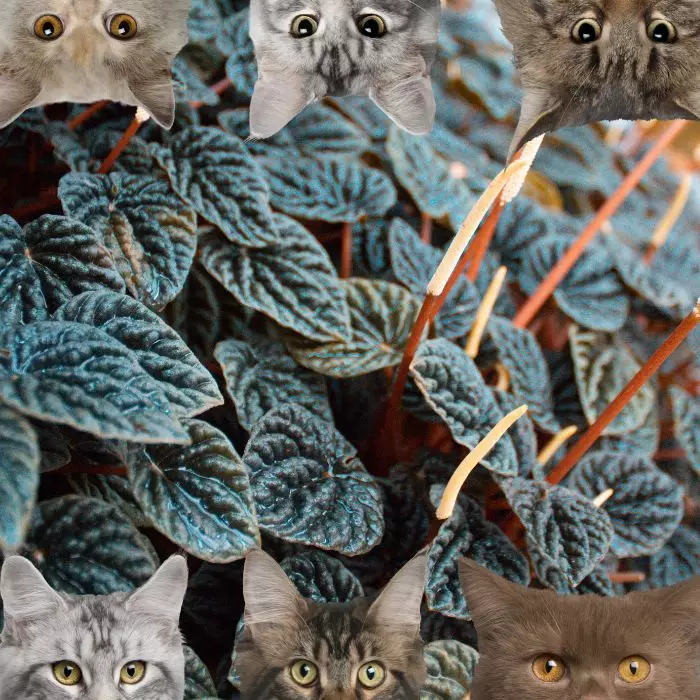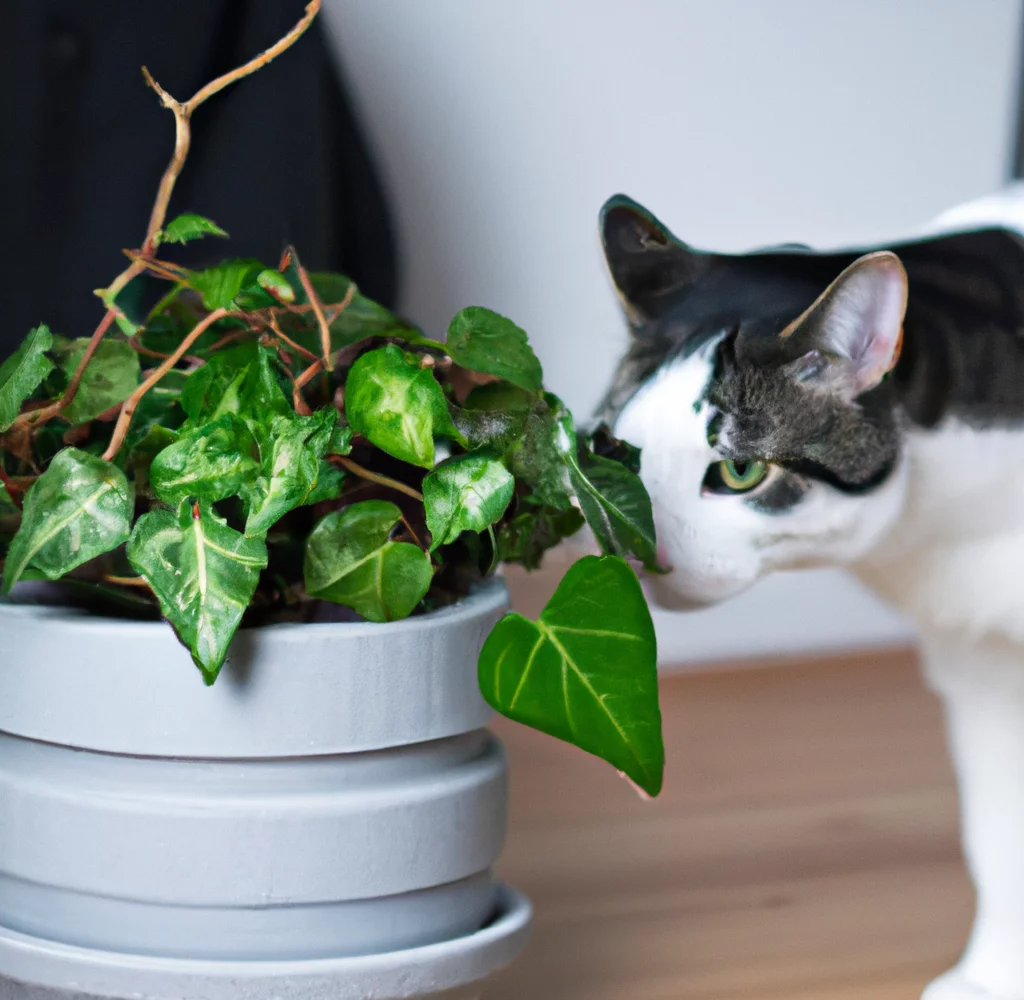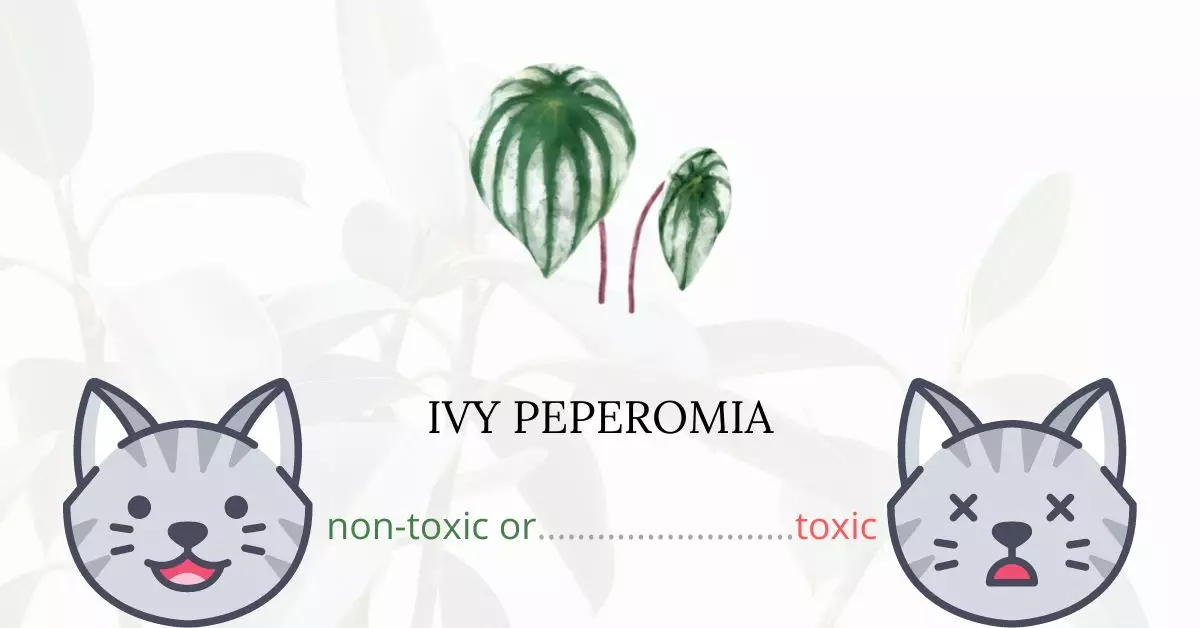The Ivy Peperomia is non-toxic to cats.
Collaborating with a team of experienced DVMs (doctors of veterinary medicine), we have crafted this article to provide you with accurate and up-to-date information regarding the potential risks associated with Ivy Peperomia and its effects on felines. To ensure the reliability of our findings, we also referenced high-authority websites such as the ASPCA and PetMD.
With this knowledge, cat owners can feel at ease knowing that their feline friends are safe around this plant.
Can Cats Eat Ivy Peperomia?

Ivy peperomia is not poisonous to cats, thus eating a small amount won’t hurt them. However, because cats are obligate carnivores, the majority of their diets should consist of meat. They need a specific type of protein that can only be obtained from animal meat, and many other crucial elements must also come from an animal source.
These animals are unable to digest plant material and vegetation properly. For the majority of cats, eating too much of this kind of food can cause digestive problems and stomach distress. This could involve diarrhea, vomiting, and nausea. This implies that your cat will get stomach distress if they consume too much of the peperomia plant. The majority of the time, though, it shouldn’t cause serious injury to your cat.
What is Ivy Peperomia?

The Ivy Peperomia, or Peperomia griseoargentea, is a species of flowering plant in the Piperaceae family that is indigenous to Brazil.
This evergreen perennial produces rosettes of silver-gray leaves with strong, curving veining that are shaped like hearts. It reaches a height and width of approximately 50 cm. In temperate regions, it is considered a houseplant when the temperature drops below 10 °C. On the other hand, throughout the summer it can be set up outside in a protected area with some shade.
It is a low-maintenance plant that expands both vertically and horizontally, giving it the appearance of a round, mound. It can be grown indoors in big spaces and in terrariums or fairy gardens. This plant is incredibly distinctive and simple to grow. Because of their hardiness, these plants are great for beginners and inexperienced gardeners.
Keeping Cats Away From Ivy Peperomia

Give your cat something to eat if it is really stubborn and won’t stop nibbling on your plants no matter how many repellents you apply, or even if they had previously experienced a stomachache but still want to eat the plants.
There are several plants that your cat can consume without becoming sick. You may purchase a cat grass kit from any pet store and cultivate your own cat grass. A cat garden made out of plants that cats like to nibble on and can even benefit from can also be something you want to consider creating. Cat grass and catnip are just two examples.
Plants to Avoid For Your Cats
If you are a cat owner and unsure if the plants growing in your yard are harmful to your cats, check out this list of toxic plants for cats. You can also check our list of non-toxic plants for cats.





